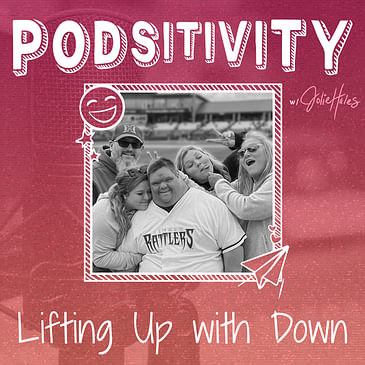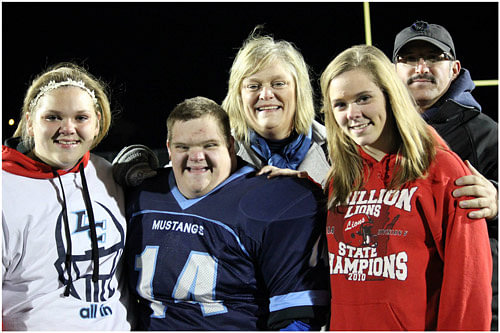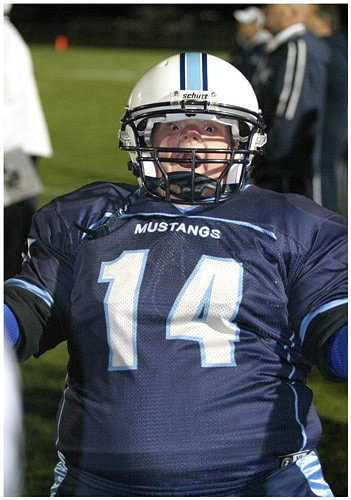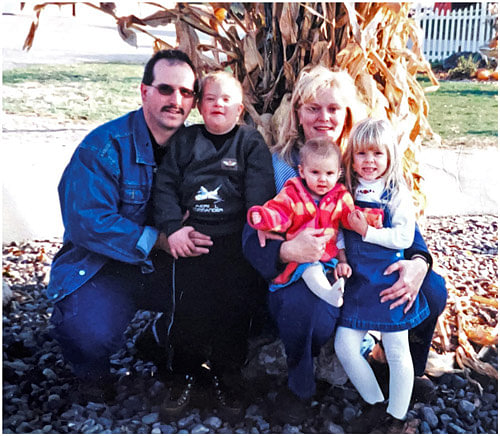A man and his family who don’t let a disability define them are embraced by their community in ways that reach beyond tradition.
Δ Full episode video with photos/videos
|
|
|
|
Δ The Van Vooren family at Noah's football game |
Δ Noah Van Vooren, 2013 |
|
|
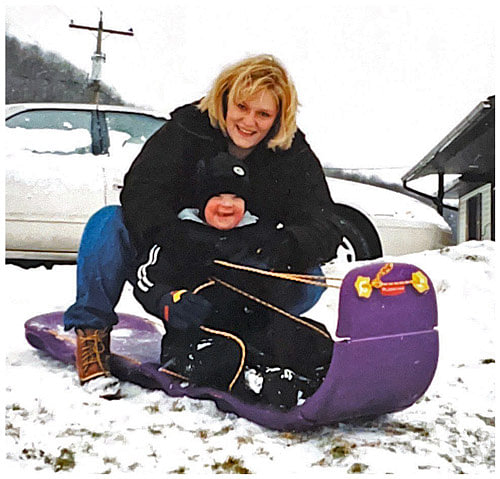 |
|
Δ The Van Vooren family in the late 1990s |
Δ Young Noah Van Vooren with his mom, Kara |
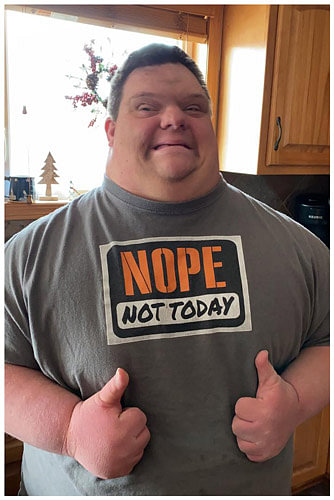 |
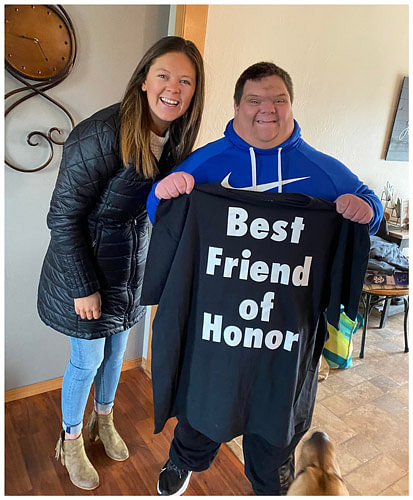 |
| Δ Noah Van Vooren, today | Δ Noah with his best friend, Ariel |

